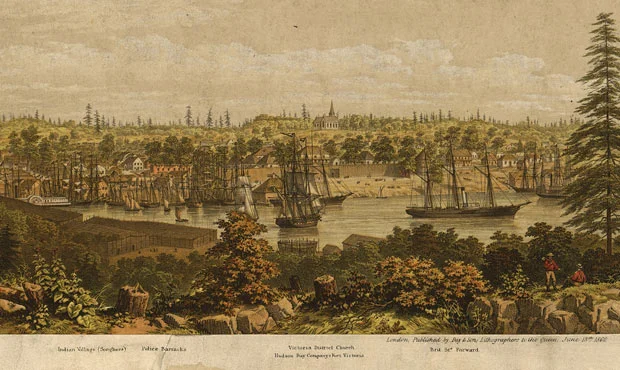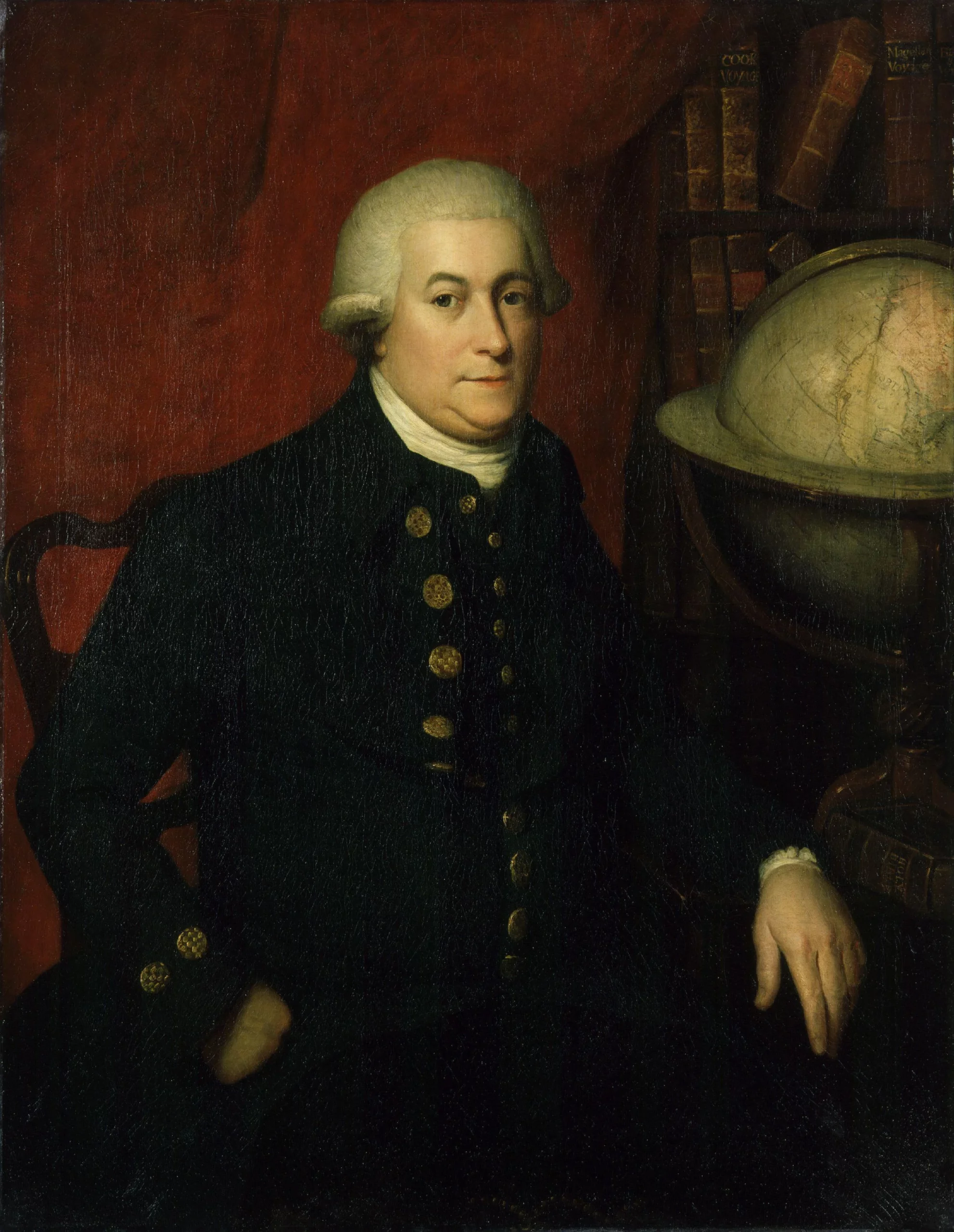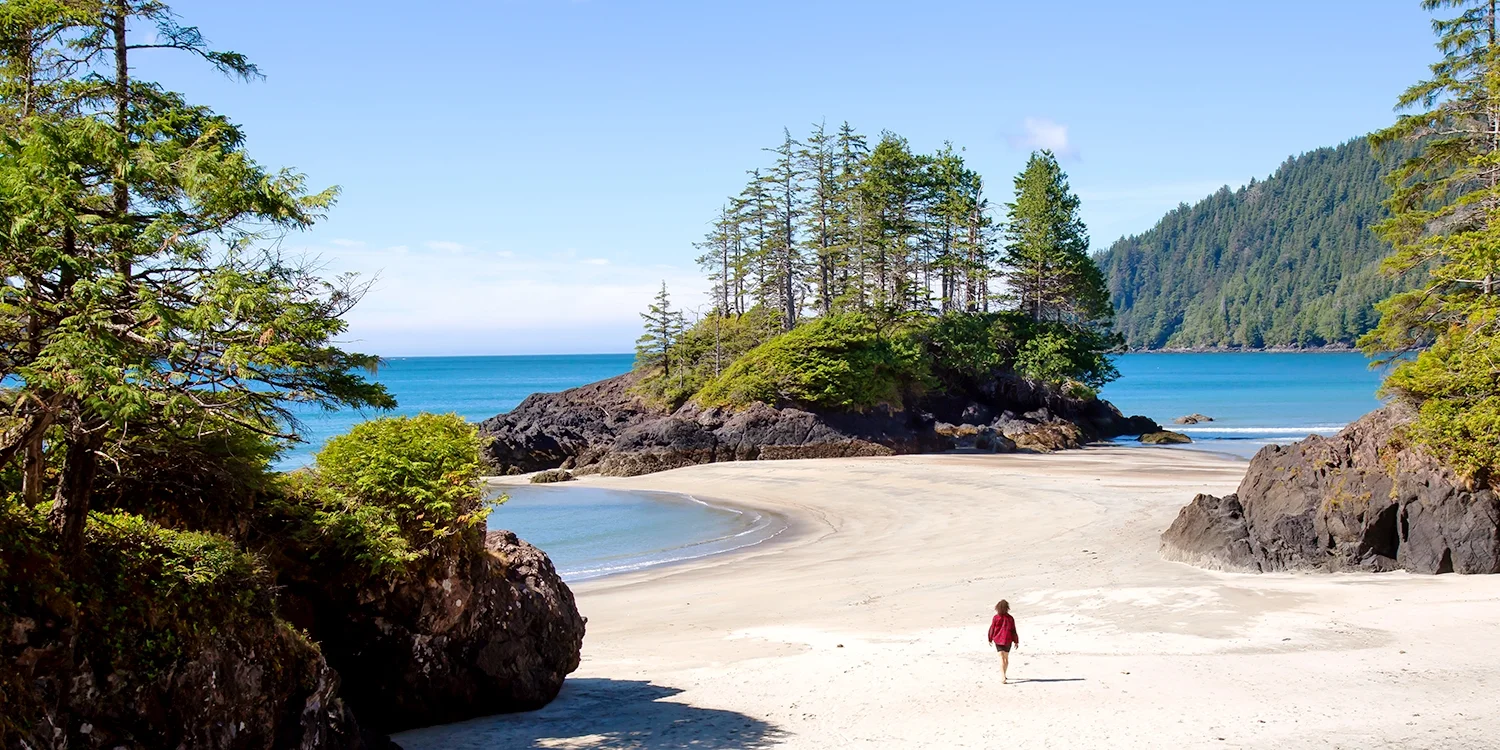Vancouver Island stands as a majestic jewel in the crown of British Columbia, Canada’s westernmost province. This sprawling island is renowned for its breathtaking natural beauty, diverse ecosystems, and rich cultural heritage. It’s not just a destination for tourists and nature enthusiasts; Vancouver Island plays a pivotal role in the economic, social, and historical fabric of British Columbia. As one delves deeper into the island’s history, the question inevitably arises: who is Vancouver Island named after?
Understanding the origins of Vancouver Island’s name is more than just a historical curiosity—it’s a journey back in time to the early days of exploration and discovery that shaped Canada’s Pacific coast. The name ‘Vancouver’ evokes a sense of mystery and intrigue, hinting at tales of exploration, adventure, and maritime discovery. At the heart of this name is Captain George Vancouver, a key figure whose legacy is intricately woven into the fabric of Canadian history.
Captain George Vancouver, a British naval officer and explorer, played a pivotal role in charting the Pacific coast of North America during the late 18th century. His voyages, meticulous mapping, and explorations laid the foundation for British claims to the region and contributed significantly to our understanding of the Pacific Northwest. As we embark on this exploration of Vancouver Island’s name, we’ll uncover the fascinating story behind Captain George Vancouver and his lasting impact on British Columbia and Canada as a whole.
The Discovery of Vancouver Island
The discovery and exploration of Vancouver Island are deeply rooted in the early maritime expeditions that charted the Pacific Northwest. European navigators, driven by the allure of uncharted lands and potential trade routes, embarked on perilous voyages across the vast expanse of the Pacific Ocean. These intrepid explorers faced treacherous seas, unknown territories, and the challenges of navigating uncharted waters, yet their thirst for discovery propelled them forward.
Among these explorers, Captain James Cook stands out as a seminal figure whose voyages had a profound influence on the region. In the late 18th century, Captain Cook embarked on several expeditions to the Pacific, charting new coastlines, mapping unknown territories, and establishing British presence in the region. His meticulous observations, detailed maps, and exploratory zeal laid the groundwork for subsequent European exploration and colonization of the Pacific Northwest.

The discovery of Vancouver Island during these early explorations marked a significant milestone in Canadian history. Named after Captain George Vancouver, the island became a focal point for British exploration and settlement in the region. Its strategic location, abundant natural resources, and rich biodiversity made it an attractive destination for traders, settlers, and explorers alike. As European influence grew, so did the island’s importance in shaping the economic, political, and cultural landscape of early Canada.
Vancouver Island’s early history is a tapestry of exploration, discovery, and interaction between Indigenous peoples and European settlers. It serves as a poignant reminder of the complex and often contentious relationships that shaped the development of Canada’s Pacific coast. Understanding the discovery of Vancouver Island not only offers insights into the early exploration of the Pacific Northwest but also provides a foundational understanding of the historical forces that have shaped British Columbia and Canada as a whole.
Captain George VancouveR: The Man behind the name
Captain George Vancouver was a distinguished British naval officer and explorer whose contributions to maritime exploration and cartography have left an indelible mark on the history of the Pacific Northwest. Born in 1757 in King’s Lynn, Norfolk, Vancouver joined the Royal Navy at a young age and quickly rose through the ranks, demonstrating exceptional skill, leadership, and dedication to his naval duties. His early naval career was marked by service in the American Revolutionary War and later in the Mediterranean, where he honed his navigational and seafaring expertise.
In the late 18th century, Captain Vancouver was entrusted with a monumental task that would define his legacy: the exploration and mapping of the Pacific coast of North America. Under the command of Captain James Cook, Vancouver served as a midshipman and later as a lieutenant on Cook’s expeditions to the Pacific. These voyages provided Vancouver with invaluable experience and knowledge of the region’s geography, navigation challenges, and potential for British exploration and colonization.
Following Captain Cook’s untimely death in 1779, Captain Vancouver was chosen to lead the expedition to complete Cook’s unfinished explorations along the Pacific coast. From 1791 to 1795, Vancouver meticulously charted the coastlines, navigated through treacherous waters, and explored numerous bays, inlets, and islands, including what is now known as Vancouver Island. His attention to detail, rigorous scientific observations, and commitment to accurate mapping set new standards for maritime exploration and cartography.

The decision to name Vancouver Island after Captain George Vancouver was a fitting tribute to his achievements and contributions to British exploration in the region. His leadership, dedication, and pioneering spirit not only led to the discovery and mapping of new territories but also established British claims to the Pacific Northwest. Naming the island after Captain Vancouver was a symbolic recognition of his pivotal role in shaping the early history of British Columbia and Canada’s west coast.
In naming Vancouver Island, Captain George Vancouver’s legacy was immortalized, and his name became synonymous with exploration, discovery, and the rich maritime history of the Pacific Northwest. Today, Vancouver Island stands as a testament to Captain Vancouver’s enduring legacy and serves as a reminder of the courage, determination, and exploration that defined the early days of British Columbia and Canada.
Vancouver Island: A Gem of British Columbia
Vancouver Island is undeniably a gem within the diverse landscape of British Columbia, offering a captivating blend of natural beauty, thriving ecosystems, and rich cultural heritage. The island’s stunning landscapes range from rugged coastlines and lush rainforests to snow-capped mountains and serene lakes, making it a paradise for outdoor enthusiasts and nature lovers alike. Its diverse ecosystems support a wealth of wildlife, including iconic species such as orcas, eagles, bears, and salmon, highlighting the island’s ecological importance within the Pacific Northwest.
Beyond its natural allure, Vancouver Island plays a pivotal role in British Columbia’s economy, with key industries that have shaped its development and prosperity. The island’s forestry sector has been a cornerstone of its economy for decades, with sustainable logging practices supporting jobs, communities, and the province’s export economy. Additionally, tourism has flourished on Vancouver Island, drawing visitors from around the world to explore its scenic beauty, vibrant communities, and unique attractions. From whale watching and hiking to wine tasting and cultural festivals, Vancouver Island offers a diverse range of experiences that cater to every interest and age group.
The fishing industry is another vital component of Vancouver Island’s economy, with its coastal communities relying on the bounty of the sea for sustenance and livelihoods. Salmon, halibut, and shellfish harvested from the island’s pristine waters are not only prized for their quality but also contribute to British Columbia’s reputation as a world-class seafood destination.
Culturally, Vancouver Island holds a special place in the hearts of Indigenous peoples whose ancestors have lived on the island for thousands of years. The island’s Indigenous history is rich and varied, with numerous First Nations communities calling it home. Their deep connection to the land, sea, and wildlife is evident in their traditions, stories, and practices that have been passed down through generations. Today, Indigenous cultures continue to thrive on Vancouver Island, contributing to its cultural mosaic and enriching the island’s identity as a place of diversity, resilience, and shared heritage.
Vancouver Island is more than just a geographical location—it’s a vibrant tapestry of natural wonders, economic opportunities, and cultural richness that embodies the spirit and character of British Columbia. Whether you’re drawn to its breathtaking landscapes, intrigued by its economic vitality, or captivated by its cultural heritage, Vancouver Island offers something for everyone to discover and appreciate.
Victoria: The Capital City of British Columbia
Victoria, the capital city of British Columbia, is a vibrant and historic city that serves as the political, cultural, and economic heart of Vancouver Island. Founded in 1843 by the Hudson’s Bay Company as a trading post, Victoria has evolved over the centuries to become a thriving urban centre with a rich tapestry of history, culture, and natural beauty.
As the capital city of British Columbia, Victoria holds a special significance in the province’s governance and administration. Its role as the seat of government dates back to 1868 when the colony of British Columbia joined Confederation and Victoria was designated as the provincial capital. Since then, Victoria has been home to the Legislative Assembly of British Columbia, where elected representatives gather to debate, legislate, and govern the affairs of the province.
Victoria’s development has been intricately linked to the growth and prosperity of Vancouver Island. In its early days, Victoria served as a strategic port and trading hub, connecting the island’s resources with markets both locally and internationally. The city’s natural harbour, protected by the Olympic Mountains and Juan de Fuca Strait, played a crucial role in facilitating trade and transportation, fuelling Victoria’s economic growth and development.

Today, Victoria is a bustling city that seamlessly blends its historic charm with modern amenities and attractions. Key landmarks such as the British Columbia Parliament Buildings, the Royal BC Museum, and the Fairmont Empress Hotel stand as testament to the city’s rich history and architectural heritage. These iconic landmarks not only showcase Victoria’s past but also serve as focal points for cultural, educational, and recreational activities that attract visitors from around the world.
In addition to its historic landmarks, Victoria boasts a wealth of attractions and activities that cater to every interest and taste. From exploring the scenic Inner Harbour and strolling through picturesque neighbourhoods to indulging in world-class dining and shopping, Victoria offers a diverse range of experiences that captivate and delight visitors year-round. Whether you’re a history buff, outdoor enthusiast, or culture lover, Victoria’s vibrant cityscape and welcoming atmosphere make it a must-visit destination on Vancouver Island.
Victoria’s role as the capital city of British Columbia has shaped its identity and contributed to its growth as a dynamic urban centre on Vancouver Island. With its rich history, iconic landmarks, and diverse attractions, Victoria continues to thrive as a cultural, economic, and political hub that embodies the spirit and character of British Columbia.
Vancouver vs. Vancouver Island – Clarifying the Names
One of the frequent sources of confusion, both within Canada and internationally, is the distinction between Vancouver and Vancouver Island. While both names pay homage to Captain George Vancouver, they refer to distinct geographical entities with unique histories, characteristics, and cultural significance.
Vancouver, often referred to as “Vancouver City” or “Metro Vancouver,” is a bustling urban centre located on the mainland of British Columbia. Founded in the late 19th century, Vancouver has grown rapidly to become one of Canada’s largest and most diverse cities. Known for its stunning skyline, cultural diversity, and vibrant arts scene, Vancouver is a modern metropolis that offers a wealth of opportunities for residents and visitors alike. Its strategic location on the Pacific coast, backed by the Coastal Mountain Range, has made it a gateway to Asia and a key hub for trade, tourism, and technology.
On the other hand, Vancouver Island is a large island situated off the southwest coast of mainland British Columbia. It is the largest island on the west coast of North America and is renowned for its natural beauty, diverse ecosystems, and rich cultural heritage. As we’ve explored earlier, Vancouver Island was named in honour of Captain George Vancouver and has played a pivotal role in the history and development of British Columbia.
Despite these clear distinctions, there remains a common misconception that Vancouver Island is part of Vancouver or vice versa. This confusion is often exacerbated by the shared name and the close proximity of the two regions. Additionally, media coverage and tourism promotions sometimes inadvertently blur the lines between Vancouver and Vancouver Island, further contributing to the confusion.
To clarify, Vancouver and Vancouver Island are two separate entities with their own unique identities and characteristics. Vancouver is a city located on the mainland of British Columbia, while Vancouver Island is a large island situated off the coast, encompassing a diverse range of communities, landscapes, and experiences. Understanding the difference between these two names is essential for anyone interested in exploring or learning more about the rich tapestry of British Columbia’s geography and history.
While Vancouver and Vancouver Island share a common namesake in Captain George Vancouver, they are distinct regions that each offer their own unique attractions, cultures, and histories. By clarifying the names and dispelling common misconceptions, we can better appreciate and celebrate the rich diversity and complexity of British Columbia’s landscape and heritage.
Vancouver island’s Rich History
Vancouver Island’s rich history is a tapestry woven with the stories, traditions, and experiences of its Indigenous peoples, European explorers, and diverse settlers. Understanding this layered history is crucial to appreciating the island’s cultural heritage and the complex relationships that have shaped its development over centuries.
The Indigenous peoples of Vancouver Island have inhabited these lands for thousands of years, with their presence dating back long before the arrival of European explorers. These First Nations communities, including the Coast Salish, Nuu-chah-nulth, and Kwakwaka’wakw, have deep-rooted connections to the land, sea, and wildlife that define the island’s unique ecosystems and landscapes. Their rich oral traditions, artistic expressions, and spiritual practices reflect a profound respect for the natural world and a deep understanding of their ancestral lands.

The arrival of European explorers and settlers in the late 18th century marked a significant turning point in Vancouver Island’s history, bringing about profound changes that would forever alter the lives of its Indigenous inhabitants. European colonization led to the establishment of trading posts, the introduction of new technologies and agricultural practices, and the gradual encroachment on Indigenous territories. These changes, coupled with the devastating impacts of disease, conflict, and displacement, had profound and lasting effects on Indigenous communities, disrupting traditional ways of life and eroding cultural identities.
In recent decades, there has been a growing recognition of the need to address the historical injustices and disparities faced by Indigenous peoples in Canada, including those on Vancouver Island. Modern-day reconciliation efforts aim to bridge the divide between Indigenous and non-Indigenous communities, fostering understanding, respect, and collaboration. Initiatives such as land acknowledgments, cultural revitalization programs, and community-led projects are helping to preserve Indigenous languages, traditions, and knowledge, while also promoting economic opportunities and self-determination.
Cultural preservation is a key focus of these reconciliation efforts, with Indigenous communities leading initiatives to reclaim and celebrate their heritage. Museums, cultural centres, and educational programs on Vancouver Island offer opportunities for residents and visitors alike to learn about Indigenous history, traditions, and contributions to the island’s rich cultural mosaic.
Vancouver Island’s history is a complex and multifaceted story that encompasses the experiences of its Indigenous peoples, European explorers, and diverse settlers. While the impacts of colonization have left indelible marks on the island’s landscape and communities, efforts to promote reconciliation, cultural preservation, and mutual respect are helping to shape a more inclusive and equitable future for all who call Vancouver Island home.
Uncovering Vancouver Island’s Legacy
As we’ve journeyed through the intricate tapestry of Vancouver Island’s history, it becomes abundantly clear that understanding this rich past is pivotal to appreciating the island’s unique character, cultural diversity, and natural beauty. Vancouver Island’s history is not merely a collection of dates and events; it’s a living narrative that continues to shape the identities and aspirations of its residents and visitors alike.
At the heart of this history is Captain George Vancouver, whose legacy and influence have left an indelible mark on the landscape, culture, and heritage of Vancouver Island and British Columbia as a whole. Through his explorations, leadership, and commitment to discovery, Captain Vancouver helped to chart the course for future generations, laying the foundation for the development and prosperity of the region.
Emphasizing Captain Vancouver’s legacy serves as a reminder of the pioneering spirit, resilience, and curiosity that have defined Vancouver Island’s history. His name may adorn the island and cityscapes, but his influence extends far beyond mere geography, inspiring exploration, innovation, and a deep appreciation for the natural world.
As we conclude our exploration of Vancouver Island’s vibrant history, we extend an invitation to all to delve deeper into the island’s rich tapestry of stories, experiences, and traditions. Whether you’re drawn to its stunning landscapes, intrigued by its cultural heritage, or captivated by its diverse communities, Vancouver Island offers endless opportunities for discovery and learning.
We invite you to explore Vancouver Island firsthand, to wander its scenic trails, to engage with its vibrant communities, and to immerse yourself in its rich history. By doing so, you’ll gain a deeper appreciation for the island’s past and a renewed sense of connection to the land, sea, and people that make Vancouver Island such a special place.
In embracing Vancouver Island’s history and Captain George Vancouver’s enduring legacy, we honour the past while looking forward to a future filled with exploration, understanding, and respect for the diverse tapestry of cultures, landscapes, and experiences that define this remarkable island.





